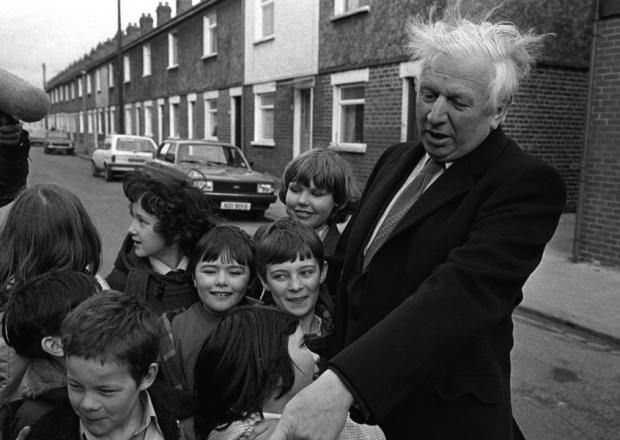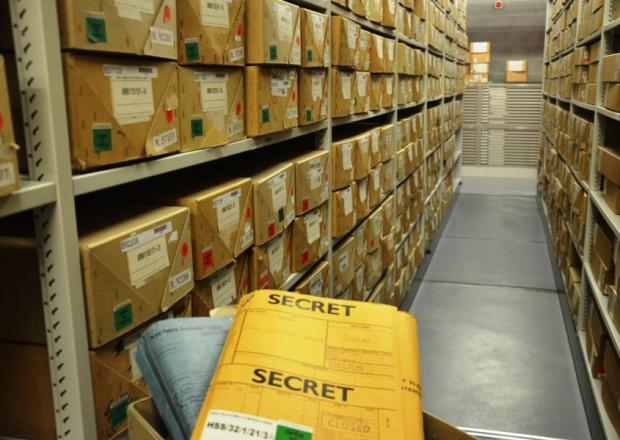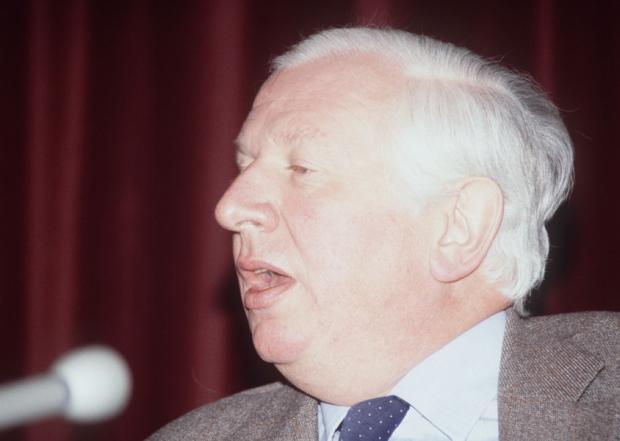|
Declassified Files: Officials wanted full Kincora inquiry in 1980s but were overruled
By Sam Mcbride
Declassified Government files on Kincora reveal that there was a consistent consensus among senior civil servants that the scandal should be investigated by the most thorough form of public inquiry – yet that did not happen. Time and time again, different high-ranking officials gave the view that an inquiry under the Tribunals of Inquiry (Evidence) Act 1921 was unavoidable given the level of concern about allegations that boys had been abused over 20 years at Kincora by senior public figures and that their crimes had been covered up. In a 30 March 1982 meeting at Stormont Castle to discuss the issue, a detailed minute records: “Given the importance of securing public confidence in the inquiry, it was agreed that [four words underlined] in the absence of powerful arguments to the contrary it would have to be held under the authority of the 1921 Act.” The Hughes Inquiry - eventually set up as a much weaker and more limited form of inquiry - would ultimately say that there was no evidence of either a homosexual vice ring based at Kincora or of a cover-up by the authorities. Over recent months the Government has resisted public and political pressure to include Kincora in the Home Office’s UK-wide inquiry into the cover up of historic child abuse. Kincora will instead be re-examined by Sir Anthony Hart’s inquiry into abuse in Northern Ireland. A document entitled ‘Note of a meeting about the Kincora inquiry at Stormont House on 28 April 1983’ contains details of a meeting at which 10 senior officials discussed how to handle the Secretary of State’s public commitment to a public inquiry. A minute by MW Hopkins in SIL division states that a Mr Brennan (an NIO official in London) said that they needed to consider whether the inquiry “would have to extend to allegations of a cover-up by inter alia [underlined] the RUC, the NIO, and NI politicians...the general view seemed to be that only an inquiry under the Tribunals of Inquiry (Evidence) Act 1921 would have the right powers but there would clearly be difficulties in persuading the senior ministers who would have an interest, as well as both Houses, that this was a matter of ‘urgent public importance’, the criterion in the Act.” The seriousness of the matter was clear when it was said that the Secretary of State would have to consult with “colleagues like the Prime Minister, the Home Secretary, the Lord Chancellor, the Attorney General, and possibly the Secretary of State for Defence, as well as the Lord Chief Justice”. The meeting was told that although in 1982 London civil servants had looked at how the Department of Health and Social Services (DHSS) was supervising children’s homes, “there had been no attempt to examine the apparent failure of the child-care system to deal effectively with allegations of child abuse made throughout the 1960s and 1970s. “Such an inquiry did seem essential to restore public confidence in the system and in morale among the staff.” The meeting then discussed how a DHSS inquiry - the model ultimately chosen by the Government - could examine aspects of the scandal which were not related to the department. It said that the “primary area of concern among politicians and the public generally [was] the allegations of a deliberate cover-up of criminal behaviour. “Those rumoured to have been either involved in a cover-up or in the homosexual practices themselves included leading politicians and party workers, RUC officers, intelligence officers and senior NIO officials.” The officials suggested that “complaints involving members of the Security Services could probably be taken in private and this part of the report not be published”. The meeting appeared to form a clear agreement that only a full public inquiry was appropriate to deal with the allegations. The minute records that “the general view was that a 1921 Act inquiry could probably not be avoided” and said that a “non-statutory inquiry seemed a non-starter because of a lack of powers to subpoena and call for papers”. Officials then dismissed the precise form of inquiry eventually set up by the Government: “An inquiry under Article 54 of the Health and Social Services Order 1972 could probably look effectively at the DHSS aspects...but the committee could not subpoena anyone from outside Northern Ireland or, more to the point, examine the cover-up allegations. “This could only be a starter if the present investigations- and the Terry report in particular - allayed public fears more than was anticipated.” The civil servants accepted that a 1921 Act inquiry would be “lengthy and costly and one which would not strictly meet the terms of the Act (although it could perhaps be argued that there had been impediments to its establishment at an earlier stage)”. But it added: “It was likely that the extent of concern in the Province would mean that only the institution of such a wide-ranging and powerful inquiry would represent a sufficient response by the Government”. A subsequent note from Mr Brennan said that investigating questions both of management and cover-up were “inescapable components of terms of reference”. In the end, the terms of reference for the Hughes inquiry made no reference whatsoever to the alleged cover-up. Mr Brennan proposed that the terms of reference should refer to “persons in authority”, leaving it for the judge to investigate allegations about police officers, politicians and others alleged to have covered-up the abuse. However, the final terms of reference were far more specific, referring to “those responsible for the provision of residential care for children and young persons”. A similar conclusion was outlined in an 11 April 1983 memo from Stephen Boys-Smith, then an NIO official. He said that though a 1921 Act inquiry was “unwelcome for many well understood reasons”, it “seems to me unavoidable, given the undertakings given and the Secretary of State’s remarks last year and recently.” He said that he did not think any other approach would be “practicable”. A reply from GL Angel said that “I share both your distaste for a 1921 Act enquiry and your inability to suggest a viable alternative means of satisfying the Secretary of State’s public commitment and the pressure of opinion in the Province”. However, he said that “if the Secretary of State sees no alternative to a 1921 Act enquiry, he will have a difficult ride at Cabinet”. The file also contains a 23 March 1982 letter from the then Attorney General, Sir Michael Havers, to Secretary of State Jim Prior, asking to be “consulted before the new inquiry in launched” and suggesting that the judge who would head the inquiry should have a role in choosing his assistants, legal team and staff. Contact: sam.mcbride@newsletter.co.uk
|
.
Any original material on these pages is copyright © BishopAccountability.org 2004. Reproduce freely with attribution.


